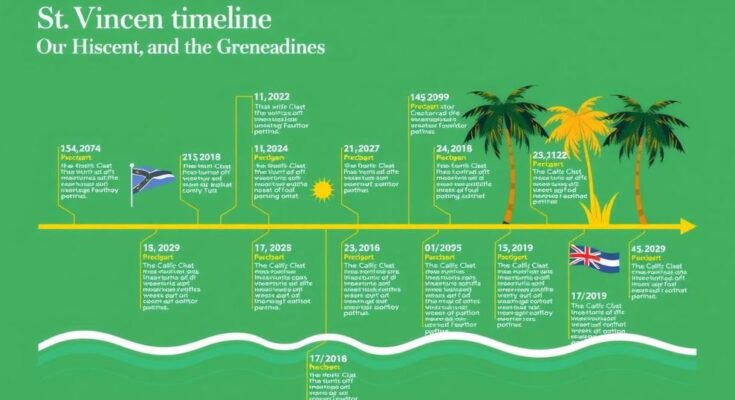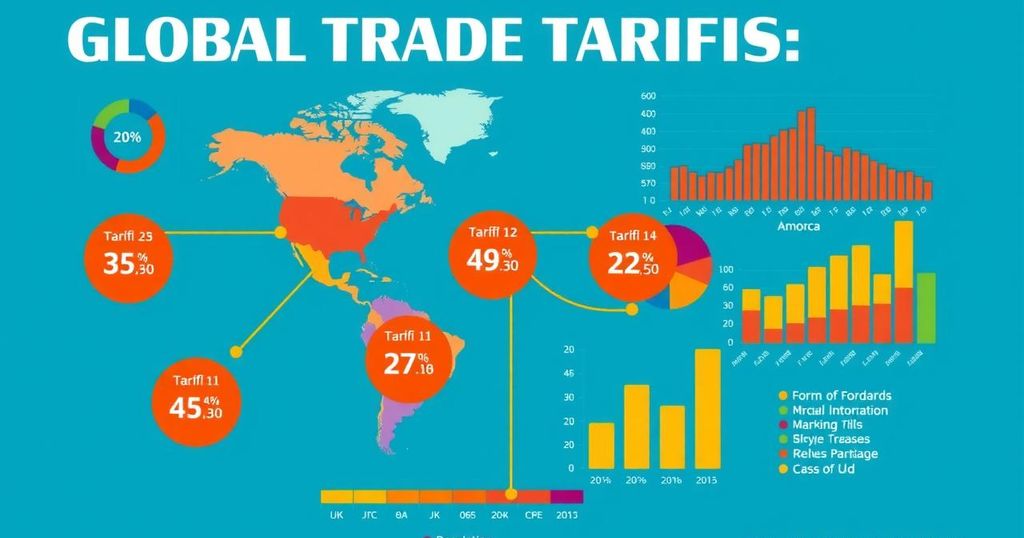This article outlines a timeline of significant events in the history of St Vincent and the Grenadines, chronicling its evolution from early indigenous societies and European colonization to achieving independence and recent political developments.
This timeline outlines significant historical events in St Vincent and the Grenadines, beginning in 1300 when the Carib Indians conquered the Arawak Indians. In 1498, Christopher Columbus visited the island, marking its introduction to European awareness. In 1627, the island was awarded to Britain’s Lord Carlisle, and in 1783, the Treaty of Paris recognized St Vincent as a British colony. The late 18th century saw uprisings leading to the deportation of 5,000 Caribs to Belize, while the early 19th century was marked by volcanic eruptions and the abolition of slavery in 1834, which affected over 18,000 slaves.
The 20th century included significant events such as the 1902 eruption of La Soufriere, which caused 2,000 casualties, and the establishment of universal suffrage in 1951. Between 1958 and 1962, St Vincent participated in the British-sponsored West Indies Federation. The path to independence began in 1969 with internal self-government, culminating in total independence in October 1979 under Prime Minister Milton Cato. The newly independent nation faced a revolt in December 1979 and workers’ strikes amid economic troubles in 1981.
James Mitchell became prime minister in 1984 after his New Democratic Party won the election and secured all parliamentary seats by 1989. The NDP maintained power through the 1990s, albeit with a diminishing majority each election cycle until Mitchell’s eventual resignation in 2000. Protests erupted due to proposals for pension increases for parliamentarians following his resignation.
In March 2001, Ralph Gonsalves, the opposition leader, rose to prime minister following early elections due to unrest. St Vincent joined the Non-Aligned Movement in 2003 and was removed from a money-laundering watchlist the same year. Gonsalves secured a second term in December 2005. However, in November 2009, voters rejected a referendum to transition from a monarchy to a republic, and in January 2011, the opposition denied assassination plot allegations made by Prime Minister Gonsalves.
The timeline of St Vincent and the Grenadines encapsulates the nation’s complex history, ranging from early indigenous conquests and European colonization to the struggle for independence and contemporary political developments. Notable events include the volcanic eruptions that shaped its landscape, the abolition of slavery, and the establishment of democratic governance. The rejection of republicanism reflects ongoing connections to its colonial past, underpinning the nation’s political narrative.
Original Source: www.bbc.com




